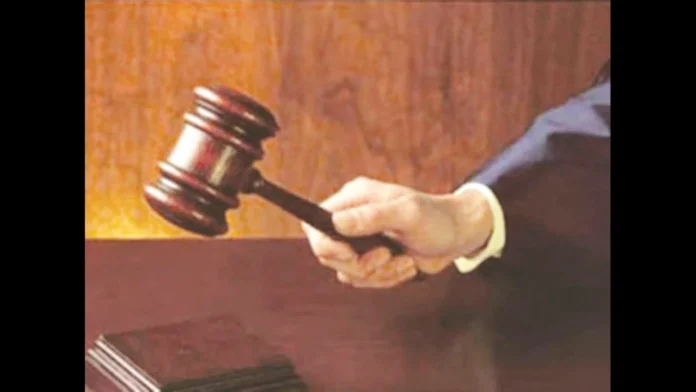“EVERY Supreme Court judge has a great deal of experience,” Chief Justice of India (CJI) DY Chandrachud said while reprimanding a lawyer for criticising another justice of the highest court.
Attorney Ashok Pandey stormed into the CJI’s courtroom, claiming he was threatened with having his advocacy license revoked after receiving a negative ruling from a bench led by Justice BR Gavai. The allegation clearly incensed the CJI, who declared: “This court has no intra-court appeal. You may file a review petition as a remedy if you feel that an order made by this court has wronged you. Each judge on this court has decades of experience in practicing law in addition to their extensive experience as judges.”
The attorney replied: “I was merely requesting the revocation of the fine order, but the judge asked me to leave the courtroom and even threatened to cancel my license.” The bench included Justices Manoj Misra and JB Pardiwala. CJI Chandrachud became irritated with Pandey and said: “I’ve been listening to you for a while, but I’m starting to run out of patience. What would transpire in different courts makes sense to me. Would you kindly seek legal recourse?” Once more, Pandey objected and questioned the Court about how the public interest litigation system would function if a petitioner was penalised for filing a petition in person.
In an attempt to persuade the advocate, the CJI explained that although disputes can occasionally get out of hand in court and lead to tense exchanges between the parties and judges, justices of the Supreme Court were experienced and skilled at handling these circumstances.
The top court had on January 2, 2023, dismissed with costs of Rs 50,000 Pandey’s plea seeking a direction to not consider advocates practicing in the apex court for judgeship of High Courts, calling it “meritless” and a “complete wastage of judicial time”. It had observed that there was nothing in the Constitution which prohibited lawyers practicing in the top court from being appointed as High Court judges. The bench scolded Pandey for failing to deposit Rs 50,000 and told him to do so in two weeks. The bench threatened to issue a contempt notice unless he paid the fine. Pandey had told the bench that according to his interpretation of Article 217 of the Constitution, a person who may have been enrolled with a state bar council and subsequently shifted practice to the apex court was ineligible to be appointed as a judge of that court. Article 217 deals with appointment and conditions of the office of a judge of a High Court.
Earlier, a bench of Justices BR Gavai and KV Viswanathan had slammed Pandey for not depositing a fine of Rs 1 lakh imposed on him when he had challenged the restoration of the Lok Sabha membership of Congress leader Rahul Gandhi.
Similarly, the Madhya Pradesh High Court in a judgment on October 25, 2023, found advocate Manoj Kumar Shrivastava guilty of contempt for false complaints and reckless allegations against judges. The Court had initiated suo motu contempt proceedings against Shrivastava after receiving a series of complaints and letters containing derogatory language directed at judges.
A division bench of Chief Justice Ravi Malimath and Justice Vishal Mishra had ruled that the language used in Shrivastava’s complaints constituted an attempt to scandalise and lower the authority of the Court, thus violating Section 2(c) of the Contempt of Courts Act, 1971. Shrivastava’s complaints contained serious allegations, including accusations of partiality, corruption, bias and improper motives against judges. Such allegations were found to undermine the Court’s dignity and authority, and as a result, Shrivastava was held in contempt. The High Court cited the 1974 case of Baradakanta Mishra vs High Court of Orissa, emphasising that deliberate attempts to scandalise the court or its judges raise larger issues concerning judicial independence and public confidence in the justice system.
The judgment emphasised that advocates had a dual role as officers of the court and agents of their clients, making it their duty to uphold the administration of justice. As such, they must be mindful of the language used in their applications and conduct proceedings with respect and caution.
Although Shrivastava had filed applications to make the judges party to the contempt proceedings, the Court rejected these stating that such requests are not feasible in a criminal contempt case. The Madhya Pradesh High Court’s ruling in this contempt case serves as a precedent for the legal profession’s conduct and underscores the importance of safeguarding the judiciary’s reputation against unwarranted attacks on its independence.
In 2019, the Sessions Court of Ahmedabad fined an advocate Rs 25,000 for seeking the prosecution of a sitting CBI judge, citing a habit of seeking criminal prosecution of judges. Advocate Devesh Bhatt filed an application for the prosecution of special CBI judge JK Pandya. The Court ruled that the judge had immunity when passing an order as part of his judicial function. Bhatt’s past behaviour, including filing a complaint against a former High Court judge, had tarnished the image of the judiciary and led to his absence from courts. The Court emphasised the duty of advocates to respect judges and judicial decisions and avoid frivolous prosecution requests.
Complaints against judges cannot solely be because of a “bad” judgment or order which has gone against the party. In every interim order/final judgment, one of the two opposing parties may not like the order. But that by itself doesn’t become a case of complaint against the judge because he may have followed the law and appreciated the evidence and no bias or misconduct may be proven. If a person has suffered from a bad or unjustified order, there is provision of revision, review or appeal to the higher judiciary.
—By Abhilash Kumar Singh and India Legal Bureau


